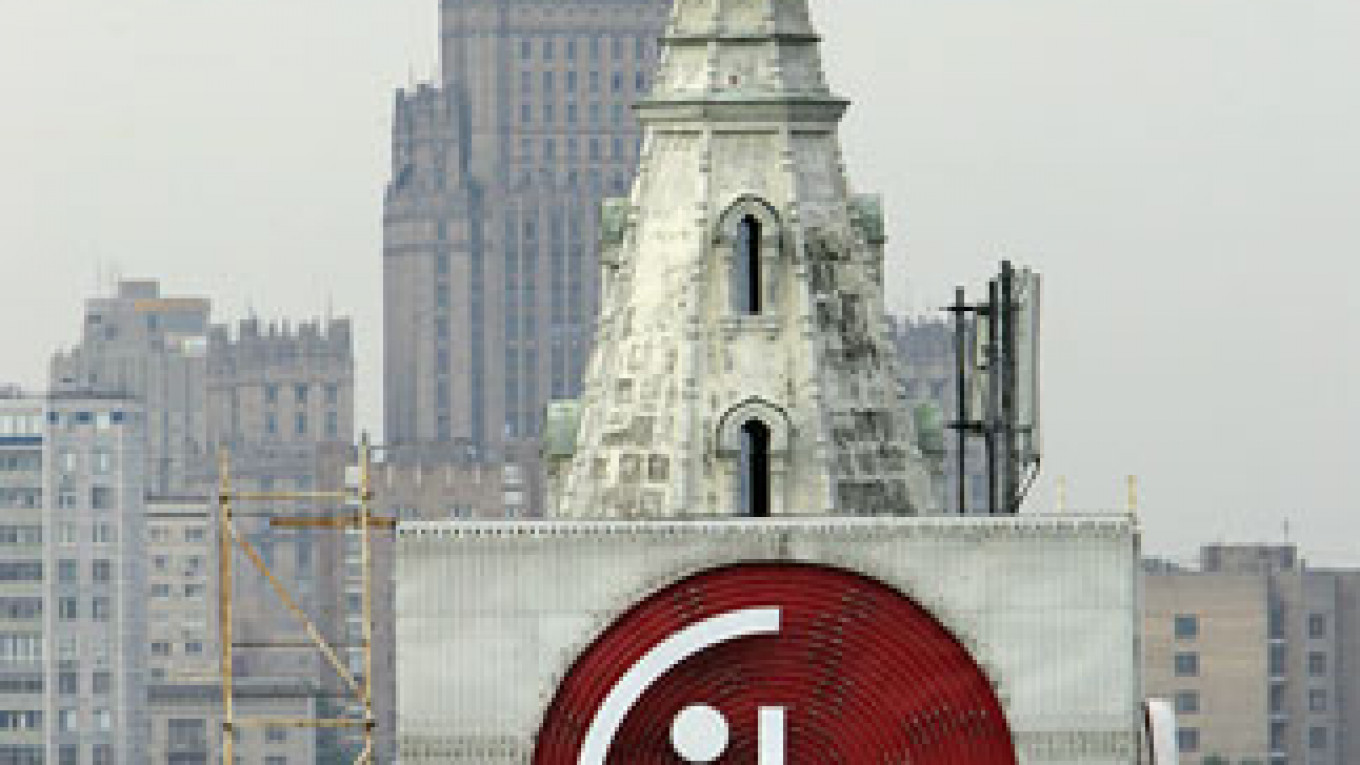Police have opened a software piracy investigation into the Russian branch of LG Electronics, in the first anti-piracy case against a major foreign company.
Pirated software is widely used in companies and homes across the country, and the LG investigation, triggered by an anonymous tip, could carry serious implications if expanded beyond the South Korean firm.
"For the first time in Russian legal practice, a criminal case over counterfeit software has been opened against a big foreign company," the Interior Ministry's economic crimes department said Wednesday in a statement.
The statement did not identify the company. But the Business Software Alliance, a global intellectual property rights watchdog, confirmed that it was LG.
The Russian branch of the Business Software Alliance asked police to check LG's computers after receiving an anonymous letter last year that the company was using pirated software, said Anna Petrova, a legal expert with the alliance.
"We sent a warning to the company, asking it to provide us with the licenses for the programs, but didn't hear back," Petrova said in a telephone interview.
She said pirated software included Adobe and Corel, graphic design programs whose makers are part of the alliance.
Police raided LG's Moscow office on Nov. 30 but only announced that they had opened an investigation Wednesday.
LG, a leading global producer of consumer electronics like televisions, cell phones and vacuum cleaners, confirmed that police investigators had searched its office on Nov. 30, but denied that any software was pirated.
"All the software used by the company is licensed," company spokeswoman Anna Fedotovskikh told The Moscow Times, adding that it was corporate policy to only use licensed software.
Petrova stressed that the investigation involved the software that LG used at the time of the raid, not today.
Police posted footage on YouTube of officers with blurred-out faces checking computers in LG's offices and two dozen hard drives stacked in a hallway.
Police said they seized 44 hard drives and 17 laptops with allegedly pirated software used by the company's 60 employees in the raid. The software was worth more than 2 million rubles ($65,000), they said.
No one has been charged with wrongdoing. Charges for using pirated software in a company carry a punishment of up to five years in prison or a fine of up to 500,000 rubles ($16,250).
The police regularly report cracking down on pirates distributing disks with counterfeit software, films and music, but this week's raid marks the first time that a big company has been checked.
"I can't recall any similar criminal cases against an international company in Russia or similar police searches," said Petrova of the Business Software Alliance.
She said big international companies usually install licensed products.
Sixty-seven percent of the country's software was unlicensed in 2009, down from 68 percent the previous year, according to a report by International Data Corp. and Business Software Alliance released in May.
Police have regularly raided small and medium-sized Russian business in a hunt for pirated software, and the LG case could lead to bigger companies being targeted, said Yana Yakovleva, head of Business Solidarity, a group that defends the rights of entrepreneurs.
"Now that they have targeted a big international company, that will give them the opportunity to create a legal precedent for further actions," Yakovleva said.
She said the raids paralyze a business, and police are indiscriminate in seizing computers. She said several business owners had told her that police confiscate computers regardless of whether they hold licenses for the software, paralyzing work for a week or even longer. She said business owners sometimes have to pay bribes to reach settlements with the police.
Despite the Kremlin's promises to protect intellectual property rights, President Dmitry Medvedev himself set a dubious example by owning an iPhone long before the cell phone could legally be used on local networks.
Poor enforcement of anti-piracy laws is a key hurdle blocking Russia from gaining membership in the World Trade Organization, and efforts to clamp down on pirated software have been halfhearted at best. In addition to the occasional raids on shops selling pirated discs, law enforcement officials have used allegations of pirated software as a pretext to crack down on opposition-minded media outlets like Novaya Gazeta and nongovernmental groups like the Russian-Chechen Friendship Society.
In January, police confiscated several computers in a search for unlicensed software at the office of Baikal Wave, a Siberian environmental organization that criticized a government plan to reopen a pulp plant on Lake Baikal.
A Perm court last fall ordered the government to pay 250,000 rubles ($8,000) in damages to a village schoolteacher for falsely accusing him of using pirated Windows software. The teacher maintained his innocence, saying the software had been installed on computers when they were delivered by a subcontractor and that he had not known it was pirated.
A Message from The Moscow Times:
Dear readers,
We are facing unprecedented challenges. Russia's Prosecutor General's Office has designated The Moscow Times as an "undesirable" organization, criminalizing our work and putting our staff at risk of prosecution. This follows our earlier unjust labeling as a "foreign agent."
These actions are direct attempts to silence independent journalism in Russia. The authorities claim our work "discredits the decisions of the Russian leadership." We see things differently: we strive to provide accurate, unbiased reporting on Russia.
We, the journalists of The Moscow Times, refuse to be silenced. But to continue our work, we need your help.
Your support, no matter how small, makes a world of difference. If you can, please support us monthly starting from just $2. It's quick to set up, and every contribution makes a significant impact.
By supporting The Moscow Times, you're defending open, independent journalism in the face of repression. Thank you for standing with us.
Remind me later.






